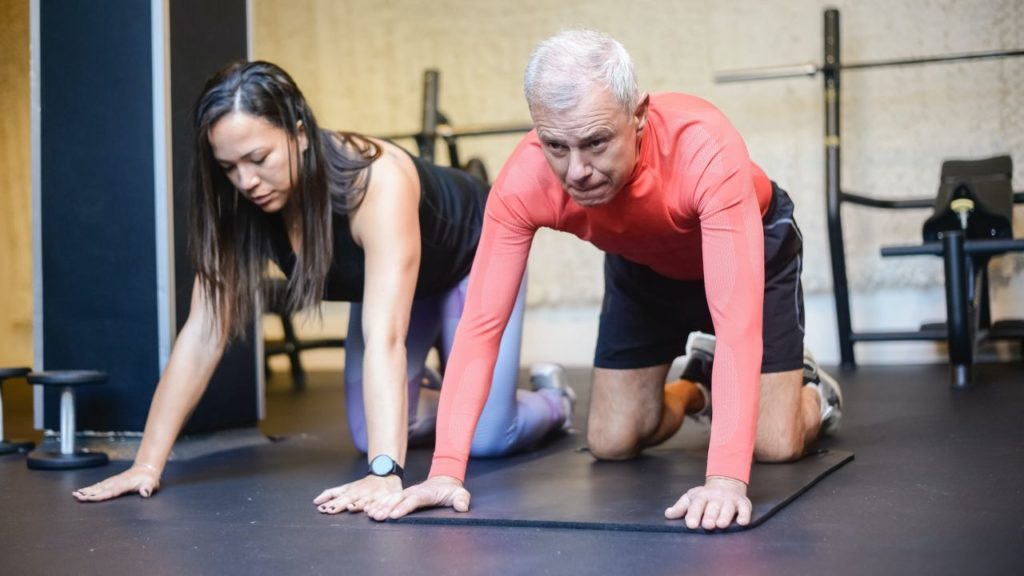Growing scientific knowledge acts as motivation to demonstrate that it is never too late to embrace new healthy practices and gain their benefits.
It is never too late to improve one’s physical and mental health by adopting a healthy lifestyle, according to anti-aging research, such as the study in which WHN/A4M co-founders Dr. Robert Goldman and Dr. Ronald Klatz recently participated and which was published in the HSOA Journal Of Alternative, Complementary & Integrative Medicine.
Have you ever considered altering your lifestyle but rejected the notion because you believed it would be ineffective or too late? According to Argye Hillis, M.D., director of the cerebrovascular section at Johns Hopkins Medicine, there is little difference between a brain aged 18 and one aged 100. Adopting healthy behaviors can have numerous benefits, including keeping you healthy and delaying aging on the inside and outside.
In a Johns Hopkins-led multi-ethnic study of atherosclerosis that followed over 6,000 people between the ages of 44 and 84 for more than seven years, those who made healthy lifestyle changes such as maintaining a healthy weight, quitting smoking, consuming a Mediterranean-style diet, and engaging in regular physical activity reduced their risk of death by 80 percent.
In order to promote mental health, physical endurance, vitality, and general health, the following modifications to one’s lifestyle have been shown to be fundamentally important and effective preventative measures:
Get Up And Be Active More Regularly
Maintaining a sedentary lifestyle is detrimental to health and well-being, as it increases all causes of mortality, doubles the risk of obesity, diabetes, and cardiovascular disease, and increases the risk of certain cancers, high blood pressure, lipid disorders, anxiety, depression, and osteoporosis. In addition to reducing the risk of heart disease, high blood pressure, and type 2 diabetes, being physically active and exercising has been demonstrated to reduce the risk of dementia and other cognitive disorders, as well as certain malignancies. The potent effects of exercise can lead to a compression of morbidity, which essentially means that you remain healthy for a longer period of time in your older years compared to a person who must spend their final years with a lower quality of life combating chronic diseases.
Make Healthier Food Selections
Anyone who has ever tried to drop a few pounds knows that there are numerous weight loss regimens that claim to be miraculous, but are unsuccessful or unsustainable in the long run. In addition, the majority of these strategies focus solely on weight loss. Improving your diet by adopting one supported by scientific evidence, such as a heart-healthy Mediterranean-style diet, will not only help you lose weight, but it can also improve cell function and protect you from depression, heart disease, dementia, inflammation, and overall mortality. This sort of diet is high in fruits, vegetables, olive oil, fish, and whole grains while being low in meat, sweets, and processed foods in order to improve longevity and healthspan.
Do Not Undervalue The Importance Of Good Sleep
Sleep is undoubtedly the most neglected aspect of health and wellness. Sleep deprivation can negatively affect memory, emotions, weight, behavior, and attractiveness, among other things. It may become more difficult to fall asleep and stay asleep as you age, but sleep is still vital and you still need the same number of hours. According to the National Sleep Foundation, the majority of sleep problems stem from underlying medical illnesses, drug side effects, snoring, and poor lifestyle choices. Your health care provider may be able to assist you in addressing these concerns, and you may be able to improve the quality of your sleep by creating a calming environment, practicing mindfulness and relaxation techniques, and allocating sufficient time to sleep.
Give Up Unhealthy Habits Like Smoking
It is a well-known truth that smoking damages the body and can result in long-term health issues. According to the CDC, quitting this unhealthy habit provides health benefits at any age, regardless of how long or how much you have smoked. In as little as 24 hours after quitting, the chance of suffering a heart attack decreases, and longer-term effects indicate that quitting smoking reduces the risk of premature mortality in middle-aged smokers by almost half. Quitting reduces the risk of death and disease from cardiovascular disease, reduces markers of inflammation and hypercoagulability, reduces the risk of certain cancers, leads to a rapid improvement in HDL-C levels, and improves the ability to smell and taste as damaged nerve endings begin to regrow after just 24 hours.
Exercise Your Brain
The brain enjoys being challenged and undertaking new tasks, such as taking a different route to work, learning a new language or talent, drawing, or completing a crossword puzzle. All of this is mental workout. According to the Alzheimer’s Association, keeping your brain active helps boost its health. Simply engaging in novel activities can aid in the retention of brain cells and synapses, and may even promote the production of new cells. Essentially, engaging in novel activities and posing mental challenges keeps the brain healthy. Reading, attempting something new, playing games, beginning a new hobby, and engaging in trivia are a few ways to incorporate mental exercises into your daily routine. There are also other mental dexterity exercises available. Maintaining mental fitness is essential for both the brain and the body.
Noting that, while the aforementioned are a good starting point, these are not the only healthy lifestyle adjustments that can provide several benefits; there are others, such as managing stress, fostering relationships, and having a happy mindset, among others. By implementing lifestyle modifications, you can improve your quality of life, happiness, health-span, and longevity for the better, and you deserve it.
As with anything you read on the internet, this piece should not be taken as medical advice; before altering your wellness routine, please see your doctor or primary care provider. The purpose of this article is not to offer medical diagnosis, advise, treatment, or endorsement.

